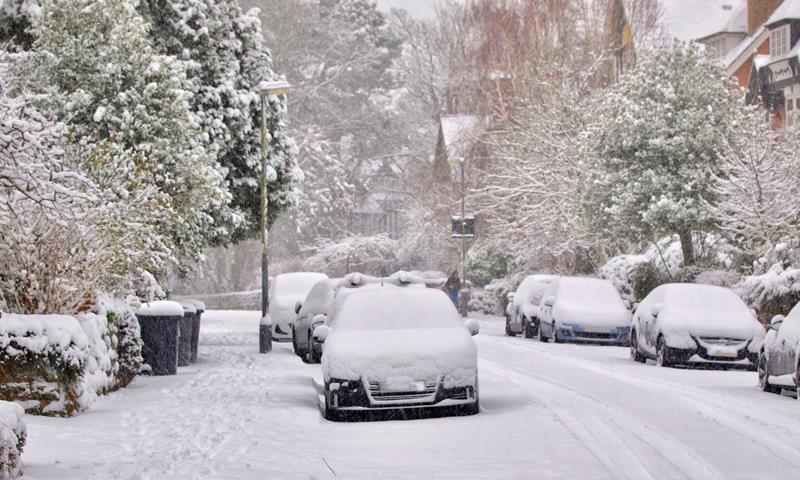-
Clearing snow from around your home
Getting rid of any unwanted snow and ice from your driveway and footpaths surrounding your home will help prevent trips and falls. Shovelling away the bulk of snow and adding salt will stop the build-up of ice. Avoid using water, even boiling water to clear away any snow as this can re-freeze quickly and turn into ice.
Find more information about clearing snow and ice away safely here -
Staying warm and healthy
The cold weather can significantly impact your health and some people are more vulnerable to the effects of cold weather than others. If you become unwell get advice from your local pharmacy, GP, or by calling 111. The sooner you get advice, the sooner you're likely to get better.
Keeping warm in the winter months can prevent colds, flu, and more serious health problems. If you can, heat your home to a temperature that's comfortable for you. This should be at least 18 degrees Celsius in rooms you regularly use.
If you're struggling to heat your home speak to our Money Advice Team who can help make sure you're getting all the financial support you're entitled to. There are lots of grants, benefits, and advice available to help with bills. There are also lots of warm spaces across the city, find them here -
Walking when there's snow and ice
Getting around on foot when there's ice or snow on the ground can be tricky. If you can, try and avoid it to prevent any slips or trips that might result in an injury. If you need medication or essentials could you arrange a delivery instead? If you really have to venture outside you could try some of these tips:- go slowly
- use treated surfaces or cleared paths
- wrap up with a hat, coat, gloves and a scarf
- wear footwear with a good grip
-
Experiencing a powercut
Power cuts are common in the snow because of high winds or the weight of snow causing tree branches to fall onto power lines.
If you experience a power cut call 105 to report it and find out information about how long the issue will take to be rectified.
Having candles, matches, torches and batteries will allow you to get around safely if the power goes down, especially if it's dark. Leaving a light on will help too, as you'll be able to see when the power cut has been fixed. -
Driving in snowy conditions
Before setting off, ask yourself whether your journey is really necessary as tyre grip is hugely reduced on icy roads and braking distances are much longer. Your travel time will also be increased as frozen conditions cause congestion and may even lead to you getting stuck and needing to walk to your destination.
Before you leave home, make sure you have your mobile phone, a charger, a bottle of water, a few snacks, and a warm blanket. If you do get stuck in the snow - these items will help. Plan your route and if you're meeting someone let them know when you expect to arrive. Completely remove all snow and ice from your car's mirrors and windows.
Find out more helpful information here -
Thinking ahead
If you live in a remote area of Staffordshire, Cheshire, or the surroundings you may find that when it snows you could possibly become cut off by snow and unable to access services and amenities for a number of days.
Being prepared will help make sure you remain safe and well during the snow:- prepare essentials to keep warm like torches, batteries, candles, matches, warm clothing and blankets
- have a stock of non-perishable food
- keep your thermostat on and set to the same temperature throughout the day and at night
- remember to put your fire out before going to bed and never use a gas hob or oven to heat your home
- prevent frozen pipes by opening cabinet doors to allow warm air to circulate around your plumbing
If you need support you can call the British Red Cross on 0808 196 3651




